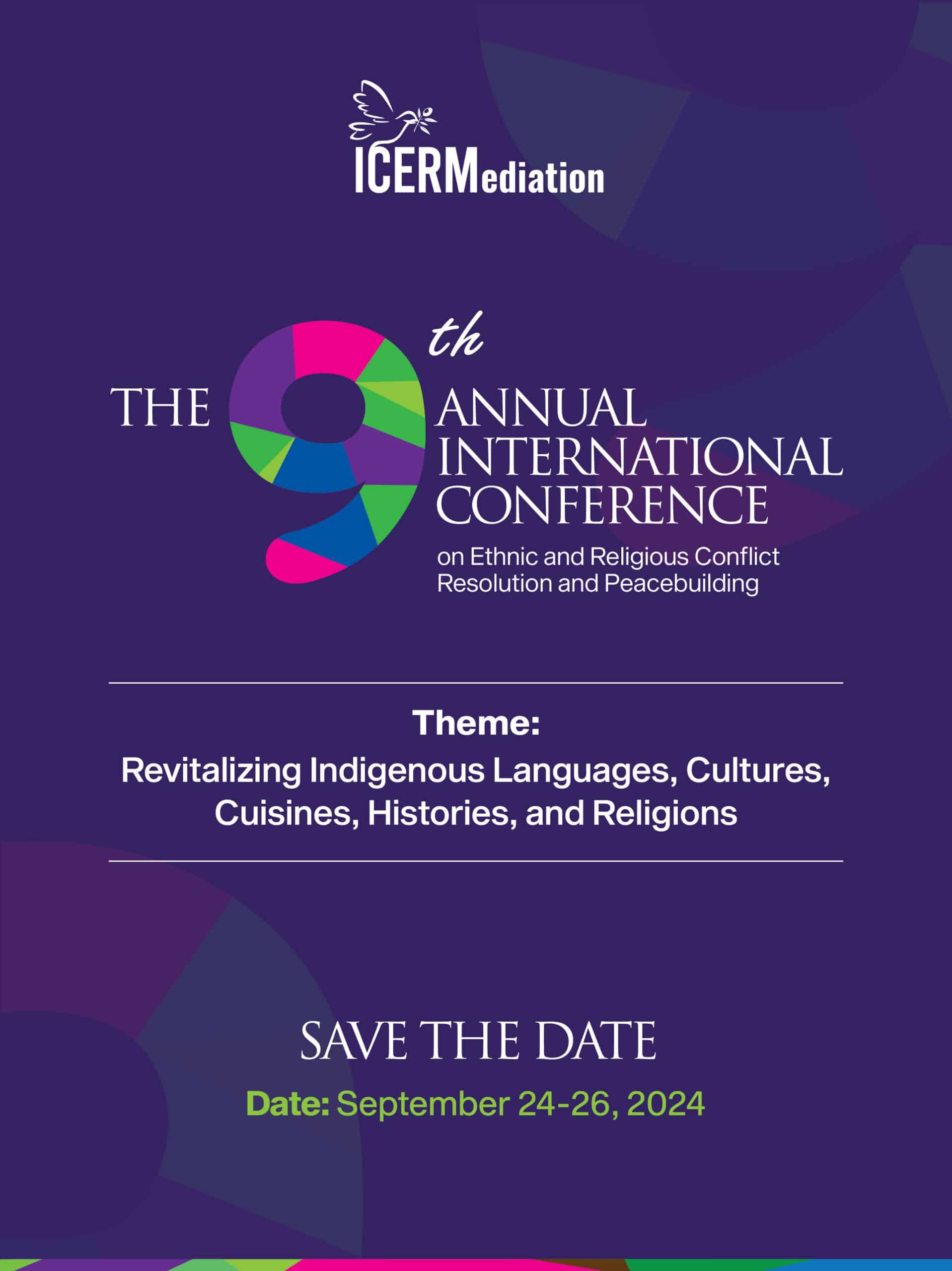The 9th Annual International Conference on Ethnic and Religious Conflict Resolution and Peacebuilding
Theme: Revitalizing Indigenous Languages, Cultures, Cuisines, Histories, and Religions
Conference Overview
In a rapidly globalizing world, indigenous languages, cultures, cuisines, histories, and religions are vital components of human heritage that should be revitalized, preserved, and learned. The loss of indigenous knowledge and practices poses a significant threat to the diversity, richness, and sustainability of our global heritage. The 9th Annual International Conference on Ethnic and Religious Conflict Resolution and Peacebuilding aims to bring together scholars, researchers, educators, policymakers, activists, practitioners, and indigenous communities to explore innovative approaches, share insights, and exchange knowledge on how to revitalize, preserve, and transmit indigenous languages, cultures, cuisines, histories, and religions for the benefit of present and future generations.
Conference Objectives
The goal of this conference is to provide a platform for interdisciplinary dialogue, knowledge sharing, and collaboration among researchers, educators, activists, policymakers, practitioners, and indigenous communities. This conference seeks to explore and develop innovative strategies, best practices, and transformative approaches to address the challenges faced in revitalizing, preserving, and transmitting indigenous languages, cultures, cuisines, histories, and religions.
Conference Themes
We invite scholars and practitioners to submit original research papers, case studies, theoretical discussions, methodological approaches, lessons learned and best practices that align with, but are not limited to, the following themes:
1) Language Revitalization and Preservation:
- Indigenous language documentation and revitalization efforts.
- Language policies and their impact on indigenous communities.
- Language preservation and the use of technology.
- Indigenous language education and curriculum development.
2) Cultural Heritage and Practices:
- Preservation and transmission of traditional knowledge and practices.
- The role of art, music, and storytelling in preserving indigenous culture.
- Indigenous identity and cultural resurgence.
- Challenges and opportunities in safeguarding intangible cultural heritage.
3) Indigenous Cuisines and Food Sovereignty:
- Cultural significance of indigenous foods and culinary practices.
- Culinary heritage, traditional food systems, and consumption practices.
- Food sovereignty and its connection to land and cultural rights.
- Challenges and innovations in promoting indigenous foods.
4) Rediscovering Indigenous Histories:
- Reinterpretation of indigenous history from an indigenous perspective.
- The impact of colonization on indigenous historical narratives.
- Unearthing hidden histories and untold stories of indigenous communities.
- Integrating indigenous histories into mainstream education.
5) Indigenous Religions and Spirituality:
- The role of indigenous religions in maintaining cultural continuity.
- Sacred sites, rituals, ceremonies, herbal medicines, and their preservation.
- Indigenous spirituality and well-being in contemporary contexts.
- Intersections between indigenous religions and contemporary belief systems.
Proposal Submission Guidelines
To read the proposal submission guidelines, visit the Conference Call for Papers page. All submissions will undergo a peer-review process.


0 Comments